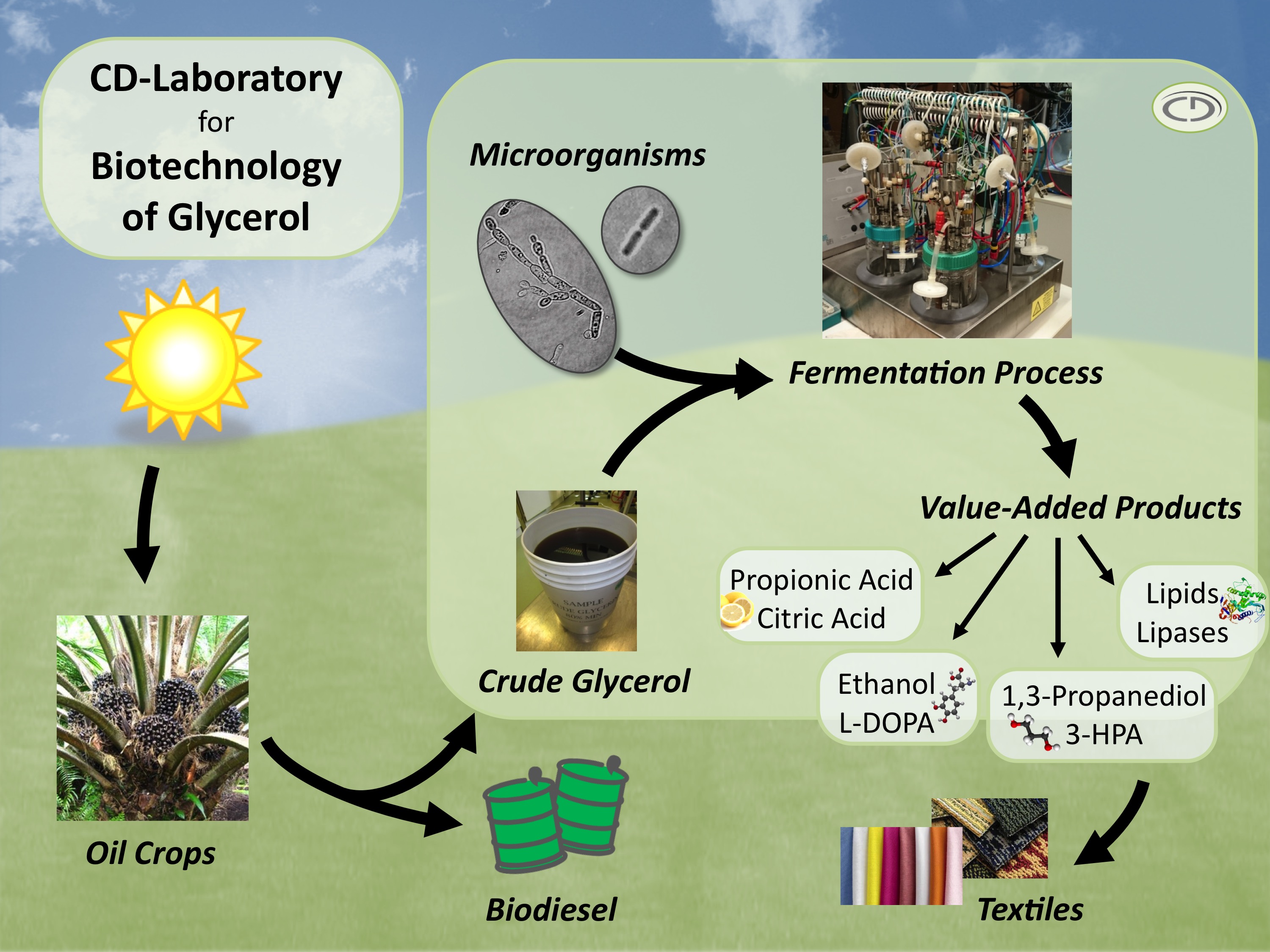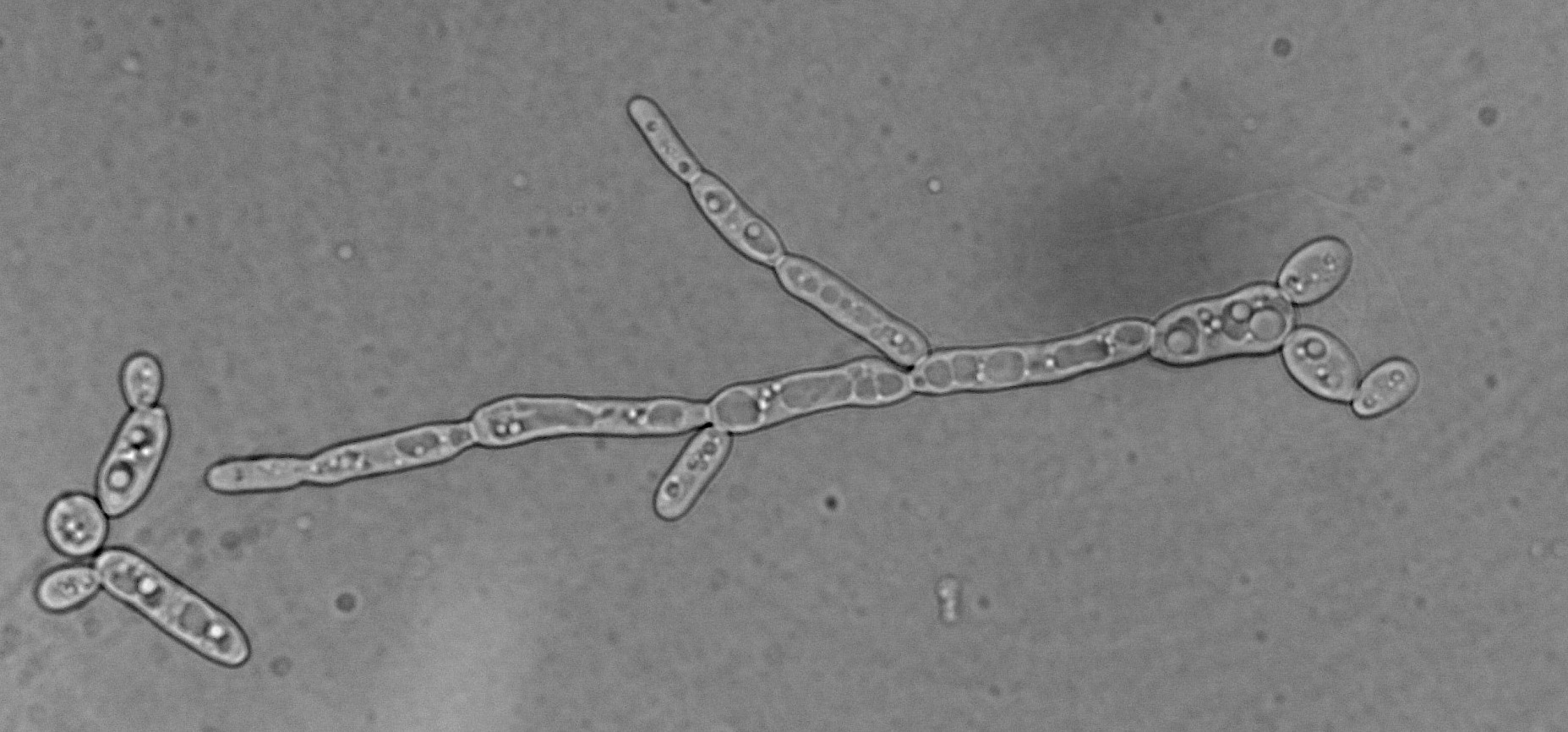CD Laboratory for Biotechnology of Glycerol


Glycerol is produced as a side stream in vegetable oil-based biorefineries, e.g. in the production of biodiesel. This CD Laboratory develops technologies for the microbial conversion of this raw glycerol into a wide range of valuable materials.
During the chemical conversion of triglycerides from oil plants such as sunflowers, rapeseed or oil palms into biodiesel, around 10% of the vegetable oil remains as glycerine. In the future, it will be produced in large quantities, particularly in Europe, as part of efforts to achieve an energy transition. There is therefore a need to upcycle glycerine into valuable downstream products beyond its current direct uses (in the food industry, cosmetics and Medicine/pharmaceuticals). Products that are of industrial interest and can be produced in microbial cell factories include raw materials for the manufacture of plastics (1,3-propanediol, 3-hydroxypropionic acid, 2,3-butanediol), solvents and refrigerants (1,3-propanediol, n-propanol), raw materials for the food industry (citric acid, sugar alcohols as sweeteners) and the pharmaceutical industry (3-hydroxypropionaldehyde, L-DOPA, amino acids) and substances that can be fed back into the biorefineries as raw materials (lipids, ethanol, lipases).
In order to pave the way for the production of future products from glycerol, two microbial cell factories are to be characterised. One of these cell factories is the lactic acid bacterium Lactobacillus diolivorans, which has already been successfully used to produce 1,3-propanediol. Another organism is the yeast Yarrowia lipolytica, which grows very well on glycerol and has an interesting product spectrum.
The area of the CD Laboratory dedicated to Lactobacillus diolivorans is particularly concerned with the metabolic processes of the microorganism, as well as with research into biopharmaceutical applications. For example, the redox balance of the cell, which is crucial for the production of various products from glycerol, will be investigated. In addition, the bacterial microcompartments that isolate certain metabolic activities within the cell will be characterised, enabling targeted biochemical reactions and an increase in efficiency.
The area of the CD Laboratory dedicated to Yarrowia lipolytica aims to close cycles in biodiesel production. The yeast is used to produce lipids, lipases and alcohols from the waste product glycerol, which can then be reused in biodiesel production. Yarrowia lipolytica forms various morphological structures that significantly influence its productivity as a cell factory. For this reason, the relationship between morphology and productivity is also being investigated in Yarrowia lipolytica.

Christian Doppler Forschungsgesellschaft
Boltzmanngasse 20/1/3 | 1090 Wien | Tel: +43 1 5042205 | Fax: +43 1 5042205-20 | office@cdg.ac.at

